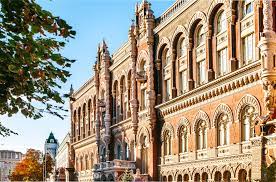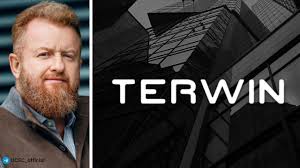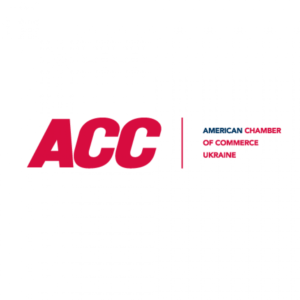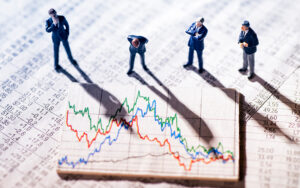
The Myasniy Rai chain of stores, known for its high-quality meat products, announces the sale of its assets and trademark. The offer opens up new opportunities for investors and entrepreneurs seeking to develop their business in the retail sector.
The Myasniy Rai chain was founded in 2017 and quickly gained the trust of customers due to its high quality products and focus on local suppliers. The first store was opened on Shevchenko Boulevard, after which the chain was constantly expanding, opening new outlets. During 2018-2022, 8 stores were opened. The total investment in business development and support amounted to more than $700,000. Now Myasnyi Rai includes three stores, a production shop, a coffee shop and an online store providing a wide range of products for customers.
Key assets:
Advantages and prospects
The Myasnyi Rai chain offers a unique opportunity for investors to enter the food market with a ready-made, well-established business.
Main advantages:
This offer for sale is an ideal option for entrepreneurs who want to invest in a stable and profitable business with broad development prospects. For more information, please call +380 67 230 00 17.
BUSINESS, BUY_BUSINESS, INVESTMENTS, MEAT, MEAT_PARADISE, TRADE

The National Bank of Ukraine says it is implementing the largest package of easing currency restrictions for businesses since the start of the full-scale war to improve the conditions for doing business in Ukraine and the entry of domestic businesses into new markets, as well as supporting economic recovery and facilitating the inflow of new investment into the country.
“First, all currency restrictions on imports of works and services are abolished. Second, the ability of businesses to repatriate ‘new’ dividends is ensured. Third, the possibility to transfer funds abroad on leasing/renting is provided,” the NBU said in a press release on Friday evening.
“Fourth, restrictions in terms of repayment of new external loans are relaxed. Fifth, the possibility to repay interest on ‘old’ external loans is provided. Sixth, restrictions in terms of transferring foreign currency from representative offices in favor of their parent companies are relaxed,” the regulator added.
It is specified that these and a number of other technical changes were introduced by the NBU Board Resolution No. 56 of May 3, 2024 to the so-called “military” Resolution No. 18 of February 24, 2022. The vast majority of the document’s provisions come into force from May 4, 2024, and only in terms of repatriation of new dividends – from May 13, 2024.
The regulator believes that this will support Ukrainian producers and provide them with the opportunity to enter foreign markets, which in turn will contribute to a gradual increase in export revenues.
It is indicated that repatriation of dividends by businesses will be allowed only for dividends accrued based on performance after January 1, 2024.
“This relaxation does not apply to the payment of dividends at the expense of retained earnings for previous periods or reserve capital,” emphasized the National Bank.
In addition, the regulator set a monthly limit for repatriation of “new” dividends at EUR1 million equivalent in order to minimize risks to macro-financial stability. It is noted that control over compliance with this norm will be ensured thanks to the NBU’s automated information system “E-limits”.
“Providing an opportunity to repatriate “new” dividends will contribute to the inflow of new investments in Ukraine, minimize the risks of curtailing the activities of enterprises with foreign capital and support the economy,” the National Bank believes.
As for the easing of restrictions on servicing and repayment of “new” foreign loans and repayment of “old”, the NBU has reduced the minimum period of use of the loan, the funds for which come from abroad after June 20, 2023 on the accounts of residents, from three to one year, when reaching which it is allowed to buy foreign currency for its repayment. Thus, the ban on the purchase of foreign currency for repayment of “new” loans will apply to loans for up to one year.
In addition, the NBU will allow businesses, regardless of the period of use of “new” loans to buy foreign currency to pay interest on them.
“All this will contribute to increasing opportunities for Ukrainian businesses to attract new external loans not only from official partners, but also from private investors,” the release said.
Moreover, according to it, resident borrowers will be able to make transfers in foreign currency to repay interest on “old” external loans, which, according to the terms of the agreement, are payable from February 24, 2022. However, under one loan agreement for interest payments overdue as of May 1, 2024, borrowers will be able to transfer no more than 1EUR million equivalent per calendar quarter.
Also, according to the release, legal entities and individual entrepreneurs will be able to transfer funds abroad for settlements under leasing or rental contracts without additional restrictions on the subject of such a contract, as well as the date of its conclusion.
The National Bank reminded that previously such permission was only for leasing or renting vehicles.
Regarding the permission for representative offices of foreign companies to transfer foreign currency to the accounts of parent companies, it is specified that the central bank will allow international card payment systems and foreign airlines to buy and transfer foreign currency abroad to the account of a non-resident legal entity, but for such operations will be set a monthly limit of EUR5 million in equivalent.
According to the regulator, this will contribute to further development of cashless settlements in Ukraine.
ACTIVITIES, BUSINESS, CURRENCY, ECONOMY, INVESTMENTS, NATIONAL BANK OF UKRAINE, UKRAINE

Business can cope with the problem of staff shortage in Ukraine by investing in technological products and process automation, says Ruslan Shostak, owner of Eva and Varus chains and president of TERWIN Corporation.
“I don’t see a big problem (with staff shortage). Yes, it exists, you can’t turn a blind eye to it, but according to statistics, not so many people left Ukraine. Our whole business was inefficient in terms of human resource utilization, which made us uncompetitive with similar businesses in Europe and the world. But there is one solution for this: money. We don’t have money to reconstruct our production facilities and enterprises. If we have money, software products, new robotic equipment, we will be able to solve this issue,” Shostak told Business Wisdom Summit in Kyiv on Wednesday.
According to Shostak, despite a slight outflow of customers, his business is showing growth: last year’s growth was almost 100% in online and 30% in retail. In addition, new logistics hubs are being built in Kyiv, Lviv, and Dnipro.
Shostak noted, while in Ukraine business development is slowed down due to the war and difficult economic situation, global business is undergoing changes and using new opportunities, including artificial intelligence.
“Now we are focusing on geopolitics, but in the next 20 years we will face global economic problems, change of specialties, professions. It is artificial intelligence that is driving the most powerful changes right now,” Shostak believes.
As reported, in October 2023, 17 companies managed by Shostak, which collectively employ 30 thousand people, merged into TERWIN (TERWIN). We are talking about Omega LLC, Rush, Tervin Group, Tixid, Tavria Hub, Instant, Formsite, Digamma, Milton Group, Saltora Plus, Firma Ariant, New Construction 2017, Altair D, Apex N, Aspect D, Lattero, Charitable Foundation Ruslan Shostak BU. The total assets of the corporation are estimated at $1.6 billion. The combined revenue of the companies reached $2 billion in the pre-war period and was expected to reach $1.7 billion in 2023.
In November 2023, Shostak and UkraineInvest CEO Serhiy Tsivkach signed a memorandum on further support of the project for the construction of logistics hubs in four regions of Ukraine (Odessa, Lviv, Dnipropetrovsk, Kyiv) with a total investment of more than $500 million.
BUSINESS, INVESTMENTS, staff shortage, TECHNOLOGIES, TERWIN Corporation, UKRAINE

Implementing rule of law, securing investment and property rights, and establishing a level playing field are among the 10 Priorities for Ukraine’s Post-War Economic Recovery developed by the experts of the American Chamber of Commerce in Ukraine (AmCham Ukraine).
Protection of investors’ rights is at the top of AmCham Ukraine’s agenda, particularly since the onset of the full-fledged invasion when business continuity, economic security, high-quality job creation, and furthering Ukraine’s ongoing resilience is truly a national security priority. This is important now to achieve victory, as well as to set the stage for the biggest economic opportunity since WWII. This will only increase and gain momentum in the months and years ahead thanks to the companies that believe in Ukraine, continue to operate and invest despite Russia’s full-scale war.
Since May 2020, AmCham has provided steadfast support for the establishment of the Office for Protection of Investors’ Rights, led by Oleksiy Boniuk, within the Office of the Prosecutor General (PGO) of Ukraine, spearheaded by Dmytro Verbytskyi, Deputy Prosecutor General. It is imperative that during this period of reform, investors committed to Ukraine may be assured of the country’s commitment to fairness, transparency, a level playing field, and protection of investor rights. Alongside AmCham President Andy Hunder’s efforts, AmCham Ukraine leadership – Chair of AmCham Ukraine Board of Directors, Lenna Koszarny, AmCham Vice President Tetyana Prokopchuk, and AmCham members met with representatives of the Prosecutor General’s Office to review the results achieved since the launch of joint work and identify key priorities for 2024 regarding the protection of investors’ rights.
The key metrics since the beginning of AmCham’s cooperation with the Office for the Protection of Investors’ Rights within the PGO are the following:
“We are determined to take concrete steps and actions so that business in Ukraine works at full capacity, contributes to Ukraine’s ongoing resilience and development, and provides resources for the country’s brave defenders to continue their heroic defense of Ukraine. We are ready to continue to provide a fair, transparent and professional platform to address cases raised by companies committed to openness, transparency, and rule of law, in the format of constructive discussion and evaluation of underlying facts,” stated Dmytro Verbytskyi, Deputy Prosecutor General.
“Ukraine continues on its path of transformation in rule of law, fairness, transparency, and level playing field, ascending twelve places in the 2023 edition of Transparency International’s annual Corruption Perceptions Index – one of the best achievements globally. In addition, in March 2023, for the first time since modern-day Ukraine’s independence in 1991, the country was removed from the list of states where structural changes are taking place that destroy anti-corruption or those where the state of anti-corruption is deemed «globally unsatisfactory» by The Council of Europe Anti-Corruption Body, the Group of States against Corruption (GRECO). Throughout this crucial process of reform, it is imperative that the country’s law-abiding top taxpayers – many of whom are among our 600+ members who have invested over $50 billion in Ukraine – have a platform to turn to in instances where they believe protection of their rights as investors is at issue. We appreciate the cooperation with Mr. Verbytskyi, Mr. Boniuk, and their teams, and the strong results achieved”, said Lenna Koszarny, Chair, AmCham Ukraine Board of Directors.
“After the Department for Investment Protection of the Office of the Prosecutor General began to lead the pre-trial investigation in the criminal case regarding the ACP complaint, there has been a marked improvement in the prospect of bringing to criminal responsibility the beneficial owners of GNT, who illegally dissipated $200 million of assets from the group that borrowed $100 million from US creditors. This department is key to demonstrating Ukraine’s ability to protect investors’ rights”, commented John Patton, Managing Director of London Office, Argentem Creek Partners.
A notable and very successful example of the cooperation of AmCham’s member companies and experts with the Prosecutor General’s Office is the joint work to reduce the scope, nature, and extent of businesses operating in the shadow economy. Specifically, success has been achieved in the field of prevention and the fight against the falsification of medicines in Ukraine. Since 2019 and until today, the Prosecutor General’s Office, in cooperation with the AmCham, has been effectively coordinating the efforts of pre-trial investigation agencies aimed at identifying, investigating, and submitting to the court case materials related to the sale to patients in Ukraine and abroad of falsified oncological, antiviral drugs, drugs for the treatment of rare diseases. At this time, the materials of 2 massive pre-trial investigations have been submitted to the court, according to which those accused of falsification face life imprisonment. Currently, pre-trial investigation is underway in 4 other cases.
AmCham Ukraine values strong cooperation and ongoing dialogue with the PGO and the Office for the Protection of Investors’ Rights and is in the process of expanding this dialogue to other enforcement agencies in Ukraine.
According to the AmCham survey, investors see business expansion as Ukraine’s greatest post-war investment opportunity, but security and rule of law are key.
About the American Chamber of Commerce in Ukraine:
The American Chamber of Commerce is Ukraine’s leading international business association that has been serving 600+ members in Ukraine since 1992, delivering the shared voice of best-in-class US, international, and Ukrainian companies, who invested over $50 billion in Ukraine and remain committed to the country.

INGO Insurance Company (Kyiv) is expanding its war risk protection by enabling small and medium-sized businesses to receive compensation for losses if the insured facility suffers as a result of air attacks or sabotage on Ukrainian territory located no closer than 100 km from the contact line.
According to the insurer’s website, it is already possible to insure facilities worth UAH 20 million against military risks.
To receive an insurance payment, the affected company will need to provide a standard list of documents and a written statement to law enforcement agencies regarding a criminal offense under Article 438 of the Criminal Code of Ukraine “Violation of the Laws and Customs of War” and a copy of the extract from the URPI under the same article.
At the same time, the company notes that in international practice, the risk of war is classified as force majeure and exceptions, according to which insurance payments are not made in a typical property contract. A separate insurance coverage is required to protect against war.
“The world has never seen a war with such intensity of shelling and scale of destruction in the 21st century. That is why reinsurers have not yet expressed a clear desire to insure property war risks from Ukraine, although negotiations are ongoing,” said Andrey Semchenko, director of the underwriting department at INGO Insurance Company.
He emphasized that even in such circumstances, INGO can offer businesses a favorable insurance offer, as it has the necessary competencies and ability to assess risks in a war on the basis of its own statistics.
According to Semchenko, the company already provides protection against war risks in other types of insurance, such as cargo transportation insurance (both sea and land), hull insurance, medical insurance, accident insurance, crop insurance, residential insurance, etc., and plans to further expand this list.
INGO Insurance Company has over 25 years of experience in the market.
Since 2017, the company’s major shareholder has been the Ukrainian business group DCH of Aleksandr Yaroslavsky.

The Business Confidence Index (BCI), calculated by the National Bank of Ukraine (NBU) on a scale from zero to 100, rose to 50.1 points in September from 49.3 in August, the National Bank of Ukraine (NBU) said on Monday.
“In September, businesses positively assessed their current performance after two months of restrained expectations. A gradual recovery in production rates, the establishment of new supply routes, a decrease in the growth rate of raw material and energy costs, improved inflation and exchange rate expectations, and strong domestic demand led to an improvement in respondents’ expectations,” the regulator said.
In particular, in September, assessments of the economic situation slightly improved in industry, services and trade, respectively from 48.8 to 50 points, from 47.3 to 47.9 points and from 52.5 to 53.3 points.
Respondents in the industrial sector improved their assessment of their economic performance, given the gradual recovery in production, new ways of supplying products, and slowing inflation.
Enterprises expect prices for their own products to rise further (from 58.8 points in August to 61.4 points in September), while lower expectations of rising prices for raw materials and supplies (from 32.3 points to 30.9 points).
According to the central bank, respondents maintained positive expectations about the volume of manufactured products and new orders for them, as well as inventories of raw materials.
It is indicated that respondents expect new export orders for products at the level of the previous month. At the same time, negative assessments of work in progress have eased somewhat, while assessments of finished goods stocks have deteriorated.
According to the NBU, trade enterprises remain the most optimistic among other sectors: for the seventh month in a row, they have been assessing their performance positively. In particular, this is due to strong consumer sentiment, sufficient supply of goods, and slowing inflation. The sectoral index in September was 53.3, up from 52.5 in August.
It is emphasized that traders are set to further increase their turnover and the volume of goods purchased for sale. At the same time, against the backdrop of stronger forecasts of higher purchase prices, respondents softened their estimates of the growth in the value of goods purchased for sale, while maintaining positive estimates of inventories of goods for sale and weakening estimates of a decline in trade margins.
As for service companies, their assessments softened somewhat, while this is the only sector that retained negative assessments of its business activity, given the destruction of transport logistics, higher fuel prices, and weak demand. The sectoral index for services rose to 47.9 last month from 47.3 in August.
According to the central bank, unlike the previous two months, respondents expected a slight increase in the volume of services provided and mitigated negative expectations of new orders. However, after three months of positive expectations, they predict a decrease in the volume of services in progress.
According to the NBU, construction companies maintained positive assessments of their performance for the fifth consecutive month due to a revival in demand for mortgage loans under preferential government programs, budget financing for construction and road rehabilitation, and seasonal factors. However, the sectoral index still fell to 50.6 points in August from 51 points in August.
It is noted that builders were somewhat more confident about the growth in construction volumes and were set to increase new orders, as well as purchases of raw materials and supplies. Also, respondents’ expectations for growth in the procurement and cost of contractor services have significantly increased, while negative assessments of their availability have softened.
Overall, most respondents expect their own products and services to rise in price amid rising purchase prices.
As for employment, the NBU assesses it as “heterogeneous.”
For the third month in a row, trade companies have been expecting an increase in staff (51.4 points), while construction managers, like last month, do not expect any changes (50 points). At the same time, respondents in industry and services still expect a reduction in the total number of employees (48.2 and 47.2 points, respectively).
The NBU clarified that the monthly survey of enterprises was conducted from September 4 to 22. It involved 502 companies. Among the surveyed enterprises, 44.4% are industrial companies, 28.9% are service companies, 20.7% are trade companies, and 5% are construction companies; 32.3% of respondents are large enterprises, 29.3% are medium-sized enterprises, and 38.4% are small enterprises.
At the same time, 31.9% of the surveyed enterprises carry out export and import operations, 9.6% – only export operations, 15.5% – only import operations, 43% – do not carry out external economic operations.